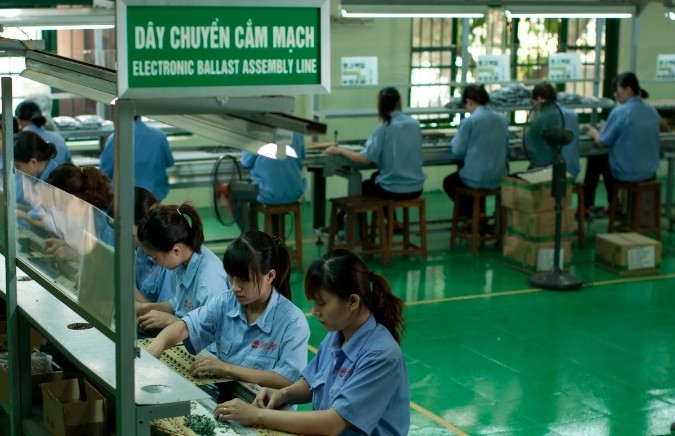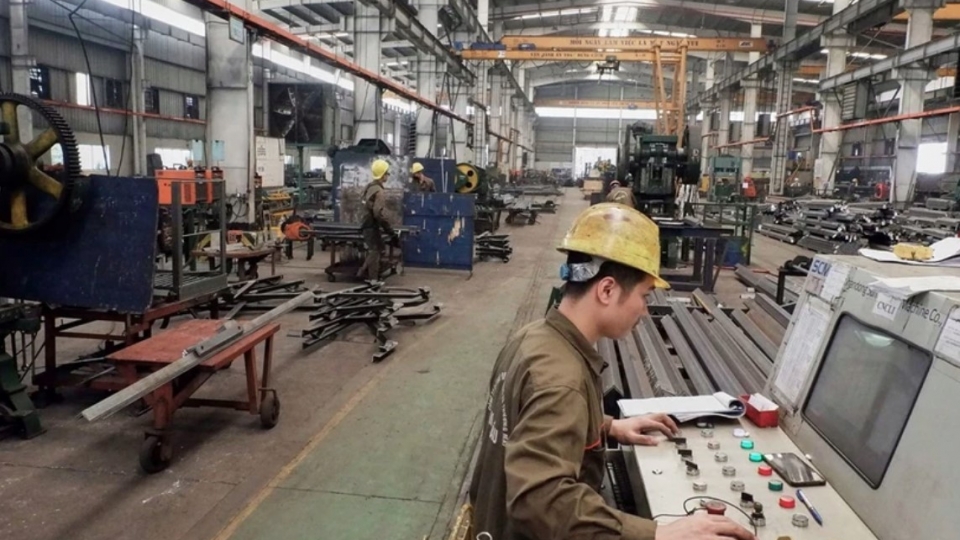Creating major breakthroughs to support domestic businesses
VOV.VN - Experts believe that to create momentum for businesses amid current challenges, the government needs to make even stronger breakthroughs to support enterprise development.

The global economy is facing numerous risks and challenges, including escalating geopolitical tensions, trade and technology wars, and rising protectionism. In addition, the reciprocal tax policy announced by US President Donald Trump on April 2 is having, and will continue to have, a significant impact on global trade, investment, and financial markets, particularly affecting countries with large trade surpluses with the US, including Vietnam.
Experts point out that, to provide momentum for businesses amid these difficulties, the government must take stronger measures to assist enterprise growth.
According to data from the General Statistics Office (Ministry of Finance), Vietnam’s GDP growth reached 6.93% in the first quarter of this year. In the first three months of 2025, more than 72,900 new businesses were registered or resumed operations nationwide, an increase of 18.6% year-on-year, with an average of over 24,300 enterprises established or resuming operations each month.
However, according to Hoang Quang Phong, Vice President of the Vietnam Chamber of Commerce and Industry (VCCI), a VCCI survey shows that only 32% of businesses nationwide plan to expand production and business operations over the next two years.
Although there are currently nearly 1 million active businesses in the country, the vast majority –around 98% – are micro, small, and medium-sized enterprises, with large enterprises accounting for just about 2%. This highlights the considerable challenges still facing the business community.

Business operations continue to be adversely affected by external factors such as geopolitical conflicts, supply chain disruptions, and shortages of input materials. Therefore, to achieve breakthroughs in 2025, key solutions include institutional reform, improving the business environment, and strengthening support for enterprises.
Sharing this view, Phan Duc Hieu, member of the National Assembly's Committee for Economic and Financial Affairs, emphasized that institutions are the sole and essential tool for the state’s management functions. However, if poorly designed, institutions can create barriers that hinder business performance.
Thus, institutional reform should not only involve streamlining administrative procedures but also reducing compliance costs. Hieu laid stress on the urgent need to enhance the quality of existing regulations, improve the effectiveness of law enforcement in line with the spirit of the legal framework, and ensure consistency and quality in newly issued legal documents.
Additionally, given the evolving domestic and global economic landscape, Hieu believes that institutional reform must not only focus on improving the investment and business environment but also on creating major breakthroughs.
Looking ahead, he proposed that the Government should establish a specialized agency with independent authority to monitor and promote institutional reform for a period of five to ten years. This agency would be responsible for rejecting subpar policy proposals while proactively recommending reforms that meet development needs.



